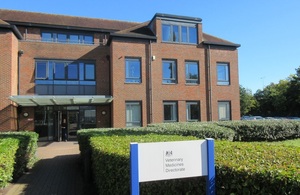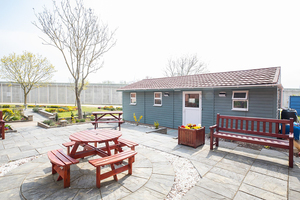Friends, excellencies, it is a pleasure to join you today.
And I would like to congratulate the Korean Government and President Moon for organising the P4G and to thank Deputy Prime Minister Hong and the Green Climate Fund for organising this event.
And, indeed, to everyone here today who gave me such a warm welcome in South Korea earlier this year.
Friends, we are at a critical juncture in the fight against climate change.
And the decisions we take today will shape the future of our planet.
If we are to keep the goals of the Paris Agreement within reach, and keep alive the ambition of limiting global temperature rises to 1.5 degrees, we must halve global emissions by 2030.
And that means taking action today to drive down global emissions over the next ten years.
And it means investing in clean recoveries from the Covid-19 pandemic.
Recoveries that we know are not just better for the planet, but better for our economies.
Because if we do not take this chance, 1.5 degrees will slip from our grasp.
And that will mean hundreds of millions more people affected by the devastating impact of climate change.
So we must make the next UN climate conference, COP26, the moment that the world comes together, to tackle the climate crisis and keeps 1.5 degrees alive.
And as COP26 President, I have four key aims to get it to do so.
Firstly, to put the world on a path to driving down emissions, until they reach net zero by the middle of this century.
Here, action from countries is absolutely vital. And the big emitters, the major economies need to lead the way.
Ahead of COP26 in November, we need all governments to commit to net zero targets, as Korea and many others have done.
And we need near term targets to put us on a path to get there.
To translate remote targets into immediate action.
So we urge every country to come forward with nationally determined contributions that align with net zero commitments.
Crucially, we also need immediate action to make those targets a reality.
Action like phasing out polluting vehicles.
And ending coal power and coal financing.
This is a personal priority for me, and I welcome President Moon’s recent commitment to put a stop to overseas coal financing.
Following the G7 Climate and Environment Ministerial, I am delighted that we are the first net zero G7.
And to deliver on this we have all agreed to accelerate the transition away from dirty coal capacity to an overwhelmingly decarbonised power system in the 2030s.
The G7 has also committed to phasing out international fossil fuel finance, beginning with an end to all direct government support for international coal power by the end of 2021.
I believe that this commitment sends a clear message to the world that coal is on the way out.
In most of the world, wind and solar are now cheaper than new coal and gas.
And a recent report published by Oxford University highlights that investing in renewables infrastructure can create more than twice as many jobs as the equivalent in fossil fuels.
Coal is old technology, rapidly receding into the past.
And investing in it today creates the very real risk of stranded assets,
$630billion worth if the existing coal pipeline goes ahead, according to Carbon Tracker.
So let’s make COP26 the moment we leave it in the past where it belongs; whilst supporting countries to make a just transition to a cleaner, greener future.
Our second goal is to protect people and nature from the effects of climate change, by boosting adaptation, and responding to the risk of loss and damage.
Increasing funds for adaptation, is a vital part of that work, and brings me on to our third goal, finance, without which, the task ahead is near impossible.
Donor countries must honour our commitment to mobilise $100billion a year to support developing countries.
And we are urging development banks to align with the Paris Agreement, to set ambitious targets for climate financing and to support green recoveries.
And we are also working to increase private finance. And to make climate a consideration in each and every financial decision.
Governments around the world can support these efforts by making climate related financial disclosures mandatory across the economy. As we, indeed, in the UK have done.
Our fourth goal is working together.
Forging consensus, so that the negotiations in Glasgow are a success.
Building international collaboration to drive action in critical sectors.
And bringing businesses and civil society together around our aims for COP26.
We are asking every business and financial institution to join the Race to Zero campaign, for example.
This is the United Nations campaign that commits you to reach net zero by 2050 and to science based targets to take you there.
I really welcome this P4G Summit, creating partnerships between governments, business and civil society to drive action on climate change.
Working together in this way, we can build back better from Covid-19 and put the world on a path to a resilient, net zero future, and keep 1.5 degrees alive.
Protecting our planet for future generations.
Thank you.

